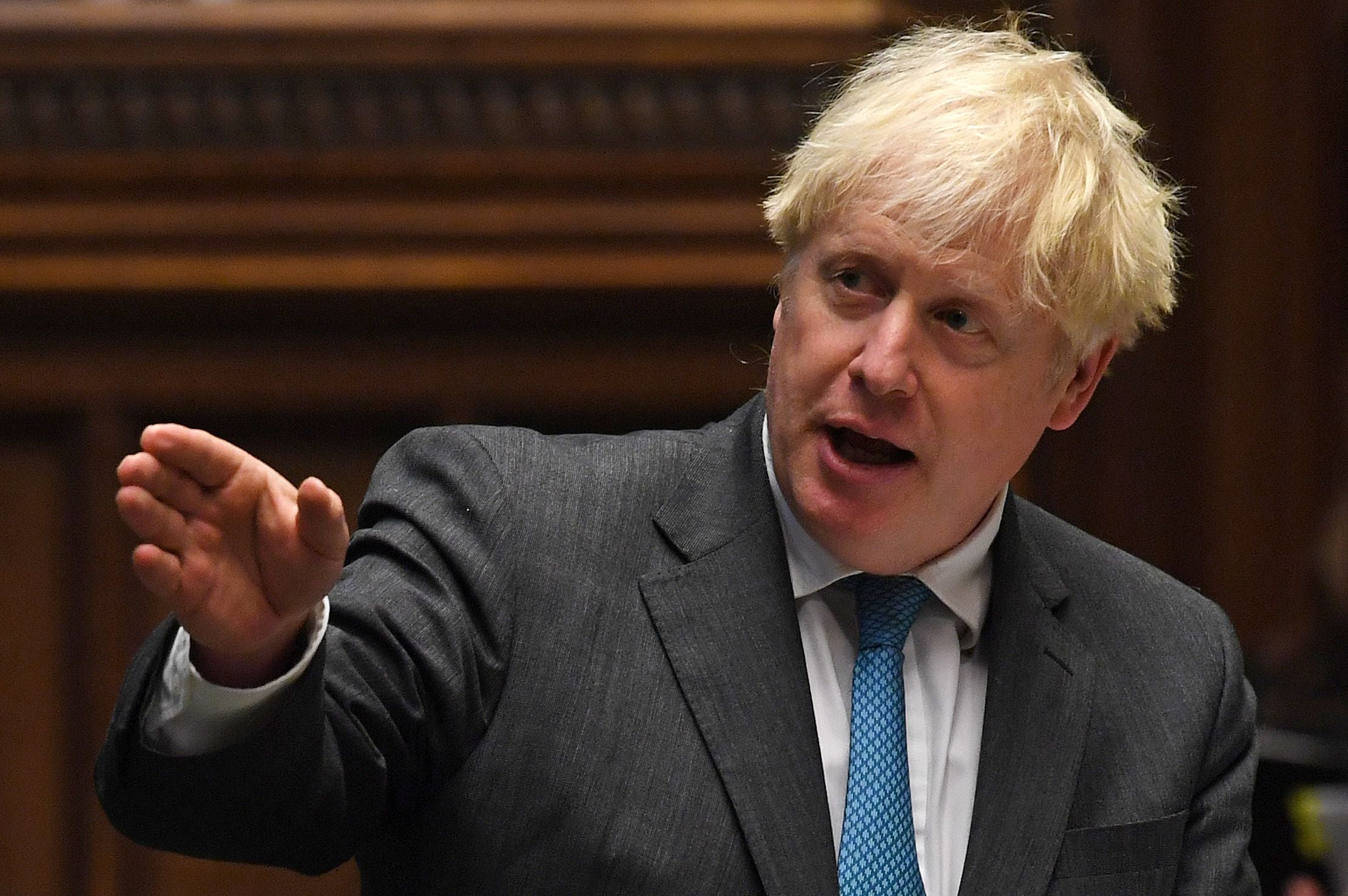Behind the fury about law-breaking, the outlines of a trade deal are visible
Despite the bluster, it’s possible that Boris Johnson could be on the brink of a Brexit deal, says John Rentoul


In all the outrage about a British government going back on a treaty it has just signed, one question still hasn’t been answered. What is Boris Johnson trying to achieve?
Has he blundered into a legal morass by mistake? Does he genuinely intend to tear up the EU withdrawal agreement while expecting the trade talks to fail? Or is he deploying the “madman” negotiating tactic, trying to convince the EU that he’s prepared to do outlandish things in the hope of frightening it into concessions?
The answer could well be a combination of all three. But the most important is probably the third explanation – posturing for the sake of putting pressure on EU negotiators.
I say this not because I have inside information from the heart of government. Or, rather, I do have inside information from the heart of government, but not about the inner workings of the prime minister’s mind on this question. I say this because it seems, from an outside view at a respectful distance, that there is a deal to be done.
There are three sticking points in the EU trade negotiations. Fish, state aid and border checks. The first two are plainly soluble. Reuters reported yesterday that the British side had offered “tentative concessions” on fishing. You do not need to understand the proposal for “annual negotiations over access and sharing opportunities based on the scientific principle of zonal attachment” to know that an agreement must be possible.
On state aid, it never made any sense that a British government would want to retain the power to subsidise industry more than would be allowed by EU rules. The EU is not demanding that the UK abide by those rules; it is merely asking politely what our policy will be, so that it knows that we won’t be engaging in unfair competition. It seems unlikely that Dominic Cummings’s reported ambition to subsidise a British tech giant to compete with Amazon, Apple, Facebook, Google and Microsoft would be enough to scupper a deal on this point.
The third question is that of border checks between Northern Ireland and the rest of the UK. First, we should dismiss Johnson’s theatrical claim that the EU is “threatening to carve tariff borders across our own country”. He painted a nightmare vision in the House of Commons on Monday of the EU imposing huge tariffs on Scottish beef, Welsh lamb and Cornish clotted cream going across the Irish Sea to Northern Ireland.
This was a remarkable argument against himself, and a vivid warning of the disaster of a no-deal scenario. If he is unable to agree a trade deal with the EU, the British government will have to charge those tariffs on behalf of the EU on goods before they enter Northern Ireland. That is because both sides have agreed that there cannot be checks and tariffs at the border between Northern Ireland and the Republic.

Johnson presented this scenario as a shocking and unacceptable intrusion by the EU, when it is the default to which he signed up in the withdrawal agreement. There are only two ways of avoiding it: one is to do a deal; the other is to impose a hard border in Ireland.
So what is the real obstacle to a deal? It seems trivial: the withdrawal agreement provides for exit summary declarations for goods moving from Northern Ireland to Great Britain. They seem pointless, but Johnson agreed to them as a price of getting the Brexit deal done. Even Hilary Benn, Labour chair of the Brexit select committee, agreed that they “should not be required”. Benn suggested it wasn’t “worth ruining our international reputation … for the sake of an electronic form”, but it would seem worth trying to persuade the EU to drop them as part of the trade deal.
It would be extraordinary, after all the apocalyptic talk about breaking international law, if the trade talks came down to the question of the EU accepting that it doesn’t need to insist on traders filling in a pointless electronic form.
Join our commenting forum
Join thought-provoking conversations, follow other Independent readers and see their replies
Comments



Bookmark popover
Removed from bookmarks